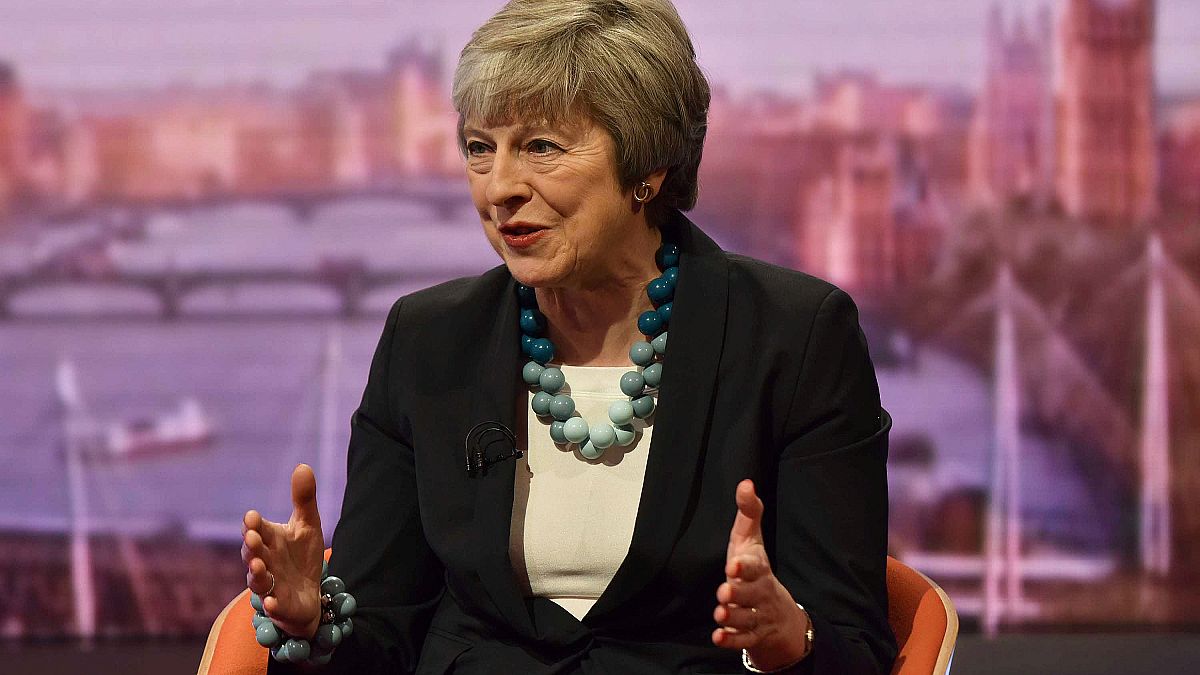British PM Theresa May said that the Brexit vote would happen in mid-January, contrary to reports that she could delay it.
The UK will be in "uncharted territory" if Theresa May's Brexit deal is rejected by parliament later this month, British Prime Minister Theresa May said on Sunday.
Describing what would happen if her deal for a managed exit lost the parliamentary vote, May told the BBC's Andrew Marr show: "I don't think anybody can say exactly what will happen in terms of the reaction we'll see in parliament."
May said the vote in parliament would be held around 15 January, as expected, countering reports that she could delay it.
"The debate will start next week and it will carry on until the following week", she said.
The UK is due to leave the EU on 29 March 2019. But so far, Theresa May's inability to get her deal through parliament has alarmed business leaders and investors who fear the country is heading for a damaging no-deal Brexit.
May delayed the vote in December when it became clear that she was going to lose unless extra reassurances from the EU were agreed. There is little sign that the PM has won over sceptical MPs since she first delayed the vote.
As the parliamentary debate on her deal is due to begin next week, on 9 January.
With her Conservative party divided over the deal she struck with the EU, May warned that rejecting it could prevent Brexit altogether. She promised parliament would have a greater say in the rest of the Brexit process.
The 'Irish backstop', a provision imposed by the EU in May's deal to ensure that no hard border is reintroduced in Ireland, is seen as unacceptable to many hard-line Brexiteers. The Conservative MP Jacob Rees-Mogg, who has been vocal about his opposition to the deal, has said it is "wishful thinking" that time away from parliament over the Christmas holiday could persuade him to change his mind and back the deal.
The Northern Irish party DUP, which is in a political alliance with May's government, called on Sunday for the British PM to "stand firm" against the EU's "bad deal" and to dump the "poison" of the backstop. In a statement, it called May's deal "toxic".
"Don't let the search for the perfect become the enemy of the good, because the danger there is actually we end up with no Brexit at all," May said.
She did not say whether she would try a second time to get the deal passed by parliament if defeated, and refused to hold a second referendum, which she said would be "divisive and disrespectful" to the voters of the 2016 vote.
"Practically, actually you couldn't get a referendum in time before the 29th of March - you'd be talking about extending Article 50," she said, referring to the two-year exit notice Britain sent to the EU in March 2017.
The UK's next steps are uncertain. They range from a no-deal Brexit to not leaving at all.
A poll released on Sunday has shown that more Britons want to remain a member of the EU than leave and voters want to make the final decision themselves.
